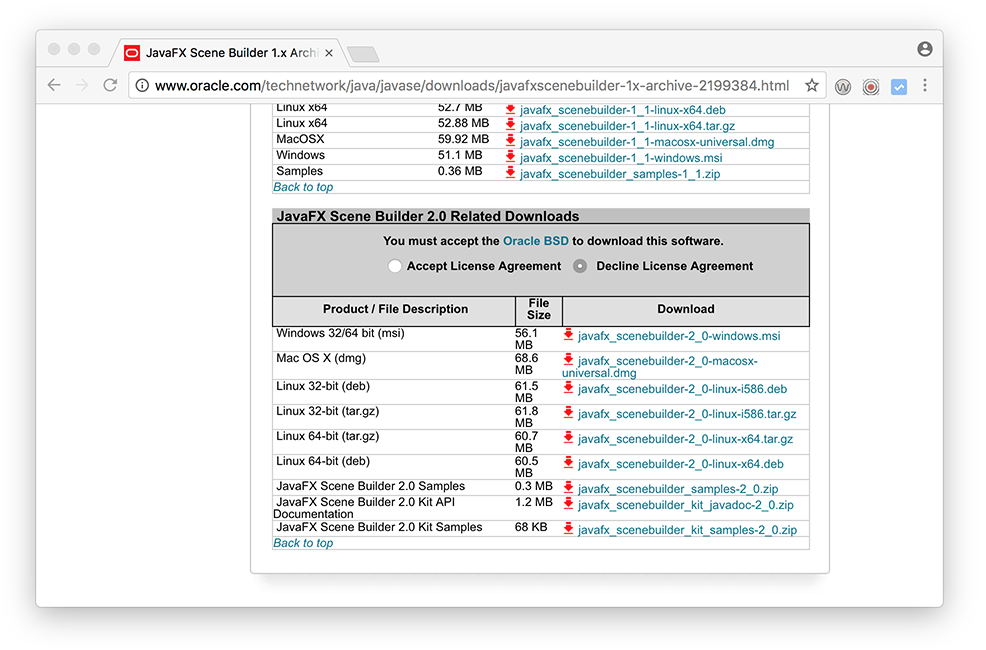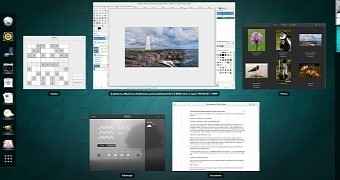-->
This guide describes the steps for switching to an internal distribution of OpenJDK. This distribution is intended for mobile development.
Download vnc client for mac os x. Download to the remote computer you want to control. Download to the local computer or mobile device you want to control from. Related downloads. Policy template files. If you have an Enterprise subscription, remotely configure and lock down apps.
Overview
Download Java SE 8 Environment 8 1.8.11.12 for Mac. Fast downloads of the latest free software! How do I install OpenJDK 8 on High Sierra? It looks like support for the Java Oracle JDK version 8 will be deprecated after January 2019 Java SE Overview. Additionally, it looks like publishing and distributing Docker containers with the Oracle Java JDK may not be legal Running Java on Docker. Liberica JDK provides Long term Support for all of its open source builds that act as alternatives for Java application development toolkits. The Liberica OpenJDK package with the HotSpot Virtual Machine viably replaces the Java 8 (LTS), 9, 10, 11 (LTS), 12, 13, 14, 15. 25,516 downloads Updated: October 30, 2020 GPL. Review Free Download specifications changelog. New in JDK 15 OpenJDK: New Features. DOWNLOAD JDK 15.0.1 OpenJDK / 16 OpenJDK Early Access 22.
Beginning with Visual Studio 15.9 and Visual Studio for Mac 7.7, Visual Studio Tools for Xamarin has moved from Oracle's JDK to a lightweight version of the OpenJDK that is intended solely for Android development. This is a required migration as Oracle is ending support for commercial distribution of JDK 8 in 2019, and JDK 8 is a required dependency for all Android development.
The benefits of this move are:
You will always have an OpenJDK version that works for Android development.
Downloading Oracle's JDK 9 or greater won't affect the development experience.
Reduced download size and footprint.
No more issues with 3rd party servers and installers.
If you'd like to move to the improved experience sooner, builds of the Microsoft Mobile OpenJDK distribution are available for you to test on both Windows and Mac. The setup process is described below, and you can revert back to the Oracle JDK at any time.
Download
Openjdk 8 Mac Os
The mobile OpenJDK distribution is automatically installed for you if you select the Android SDK packages in the Visual Studio installer on Windows.

On Mac, the mobile OpenJDK will be installed for you as part of the Android workload for new installs. For existing Visual Studio for Mac users, you will be prompted to install it as part of your update. The IDE will prompt you to move to the new JDK, and will switch to using it at the next restart.
Troubleshooting
If you encounter issues with the setup on Mac or Windows, you can take the following steps for manual setup:
Check if OpenJDK is installed on the machine in the correct location:
- Mac – $HOME/Library/Developer/Xamarin/jdk/microsoft_dist_openjdk_1.8.0.x
- Windows – C:Program FilesAndroidjdkmicrosoft_dist_openjdk_1.8.0.x
Point the IDE to the new JDK:

- Mac – Click Tools > SDK Manager > Locations and change the Java SDK (JDK) Location to the full path of the OpenJDK installation. In the following example, this path is set to $HOME/Library/Developer/Xamarin/jdk/microsoft_dist_openjdk_1.8.0.9 but your version may be newer.
- Windows – Click Tools > Options > Xamarin > Android Settings and change the Java Development Kit Location to the full path of the OpenJDK installation. In the following example, this path is set to C:Program FilesAndroidjdkmicrosoft_dist_openjdk_1.8.0.9, but your version may be newer:
Known Issues
Package 'OpenJDKV1.RegKey,version=1.8.0.25,chip=x64' failed to install
This may be an issue in some corporate environments. OpenJDK is already on the machine - follow the troubleshooting steps above to point your IDE to the correct location. You can follow the status of the issues here.

Summary
In this article, you learned how to configure your IDE to use Microsoft's Mobile OpenJDK distribution, and how to troubleshoot should you encounter issues.
Need help installing OpenJDK 11 on MacOS? Click here to learn how in this simple, easy-to-follow tutorial with sample code!
Join the DZone community and get the full member experience.

If you download the .tar.gz for OpenJDK 11 directly from http://jdk.java.net/11/, there's no obvious installation instructions (at least that I could find) on the OpenJDK website or in the .gz file. If you've done any fiddling with different JDK versions on MacOS before, you've probably come across the ‘/usr/libexec/java_home' utility, which composes a number of useful things relating to the JDK that you're currently using in your PATH. Click here for my previous article about this utility and answers to this StackOverflow post, which includes one of the most extensive and useful guides to running different JDK versions on MacOS that I've seen.
/usr/libexec/java_home: This will show you where the current JDK home is, for example:
/usr/libexec/java_home -V: This lists all installed JDKs, which is shown below:
To switch between JDKs, use /usr/libexec/java_home -v version (e.g. 10):
Knowing that your available JDKs are installed to /Library/Java/JavaVirtualMachines/ by default, moving the contents of the downloaded OpenJDK 11 dir from inside the .gz file to the same location would make sense.
Once you've moved it there, java_home -V now shows the new JDK in place:
Install Openjdk Mac Os
Updating my aliases to quickly switch versions in my .bash_profile, I now have:

On Mac, the mobile OpenJDK will be installed for you as part of the Android workload for new installs. For existing Visual Studio for Mac users, you will be prompted to install it as part of your update. The IDE will prompt you to move to the new JDK, and will switch to using it at the next restart.
Troubleshooting
If you encounter issues with the setup on Mac or Windows, you can take the following steps for manual setup:
Check if OpenJDK is installed on the machine in the correct location:
- Mac – $HOME/Library/Developer/Xamarin/jdk/microsoft_dist_openjdk_1.8.0.x
- Windows – C:Program FilesAndroidjdkmicrosoft_dist_openjdk_1.8.0.x
Point the IDE to the new JDK:
- Mac – Click Tools > SDK Manager > Locations and change the Java SDK (JDK) Location to the full path of the OpenJDK installation. In the following example, this path is set to $HOME/Library/Developer/Xamarin/jdk/microsoft_dist_openjdk_1.8.0.9 but your version may be newer.
- Windows – Click Tools > Options > Xamarin > Android Settings and change the Java Development Kit Location to the full path of the OpenJDK installation. In the following example, this path is set to C:Program FilesAndroidjdkmicrosoft_dist_openjdk_1.8.0.9, but your version may be newer:
Known Issues
Package 'OpenJDKV1.RegKey,version=1.8.0.25,chip=x64' failed to install
This may be an issue in some corporate environments. OpenJDK is already on the machine - follow the troubleshooting steps above to point your IDE to the correct location. You can follow the status of the issues here.
Summary
In this article, you learned how to configure your IDE to use Microsoft's Mobile OpenJDK distribution, and how to troubleshoot should you encounter issues.
Need help installing OpenJDK 11 on MacOS? Click here to learn how in this simple, easy-to-follow tutorial with sample code!
Join the DZone community and get the full member experience.
Join For FreeIf you download the .tar.gz for OpenJDK 11 directly from http://jdk.java.net/11/, there's no obvious installation instructions (at least that I could find) on the OpenJDK website or in the .gz file. If you've done any fiddling with different JDK versions on MacOS before, you've probably come across the ‘/usr/libexec/java_home' utility, which composes a number of useful things relating to the JDK that you're currently using in your PATH. Click here for my previous article about this utility and answers to this StackOverflow post, which includes one of the most extensive and useful guides to running different JDK versions on MacOS that I've seen.
/usr/libexec/java_home: This will show you where the current JDK home is, for example:
/usr/libexec/java_home -V: This lists all installed JDKs, which is shown below:
To switch between JDKs, use /usr/libexec/java_home -v version (e.g. 10):
Knowing that your available JDKs are installed to /Library/Java/JavaVirtualMachines/ by default, moving the contents of the downloaded OpenJDK 11 dir from inside the .gz file to the same location would make sense.
Once you've moved it there, java_home -V now shows the new JDK in place:
Install Openjdk Mac Os
Updating my aliases to quickly switch versions in my .bash_profile, I now have:
Sourcing the .bash_profile (source .bash_profile) and then running each alias, now I've got OpenJDK 11 set up and ready to go!
Brew Install Openjdk 8
Published at DZone with permission of Kevin Hooke, DZone MVB. See the original article here.
Mac Openjdk8
Opinions expressed by DZone contributors are their own.
